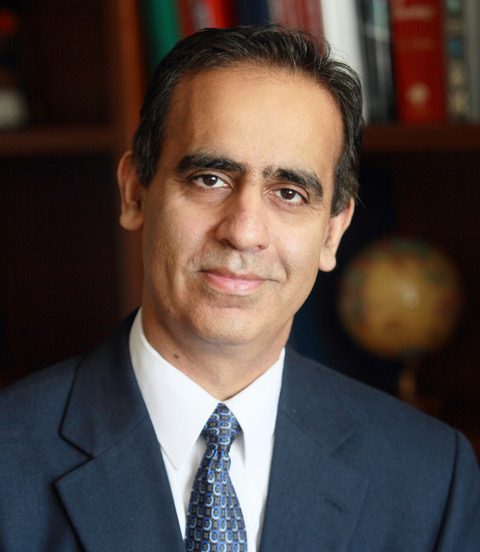
One in eight men will receive a prostate cancer diagnosis in his lifetime, according to the American Cancer Society, and about one in 40 will die as a result. A USC research team has now developed an innovative treatment for prostate cancer, known as synthetic immune receptor (SIR-T) therapy. The new technology was adapted from chimeric antigen receptor (CAR-T) therapy, which has proven effective for several types of blood cancer.
“We have a homegrown USC technology which shows a lot of promise. If the path that we are on ultimately proves successful, it could revolutionize the treatment of not only prostate cancer but also other cancers,” said principal investigator Preet M. Chaudhary, MD, PhD, a professor of medicine at the Keck School of Medicine of USC.
Chaudhary has been selected to receive a $5.8 million award from the California Institute for Regenerative Medicine (CIRM), a publicly funded state initiative for stem cell research, to begin conducting preclinical studies of SIR-T therapy. Chaudhary is the Bloom Family Chair in Lymphoma Research, chief of the Nohl Division of Hematology and Center for Blood Diseases in the Department of Medicine, and director of the USC Norris Comprehensive Cancer Center’s Blood and Marrow Transplant and Cell Therapy program.
“If the therapeutic is successful, it will extend the long-term survival rates for Californians with prostate cancer.” Currently, approximately 61,860 patients die from prostate cancer in California every year.
A new approach to immunotherapy
In CAR-T cell therapy, a patient’s T-cells, which are part of the body’s immune response, are extracted and genetically engineered to express the chimeric antigen receptor (CAR). The modified T-cells are then reinjected into the patient, where CAR enables them to selectively seek out, bind to and kill cancer cells.
CAR-T therapy—which is now approved by the U.S. Food and Drug Administration (FDA) to treat several blood cancers including leukemia, lymphoma and multiple myeloma—has been revolutionary for certain patients. Just a single dose can send some patients with advanced cancer into remission.
But its success in treating blood cancers has not translated into effectiveness against solid tumor cancers, such as prostate, breast, brain, gastrointestinal, skin and lung cancer. CAR-T therapy can also cause fatal complications, including an overactivation of the immune response known as cytokine release syndrome, as well as seizures and a dangerous swelling of the brain.
“The bottom line is that people have tried to replicate the success of CAR-T cell therapy with solid tumor cancers, and have been mostly unsuccessful,” Chaudhary said.
SIR-T therapy, in contrast, uses different receptors that more closely resemble the body’s natural T-cells. Chaudhary and his team tested thousands of prototypes over an eight-year period to develop receptors that are effective and safe for solid tumors, including prostate cancer. An initial round of tests in mice yielded very promising results, prompting Chaudhary to apply for funding from CIRM.
Accelerating the development process
With the new award, Chaudhary and his team can now begin conducting preclinical trials of SIR-T therapy, known as Investigational New Drug-enabling studies. Their research over the next two and a half years will culminate in an application for FDA approval to begin clinical trials in humans. If all goes according to plan, patients could have access to SIR-T therapy within just a few years.
In the meantime, Chaudhary’s lab is also testing SIR-T therapy for other types of cancer. They have been selected to receive a series of grants from the U.S. Department of Defense to study the technology’s effectiveness against melanoma, kidney cancer, lymphoma and a different molecule involved in prostate cancer.
“This technology has a lot of different applications, so we are working to ensure the platform works across disease types,” Chaudhary said. “The series of grants we’ve received reflects a lot of excitement about the SIR-T platform.”
About this Award
This research is funded by CIRM TRAN1-13370. Other members of Dr. Chaudhary’s laboratory who will work on the research include Hittu Matta, PhD, Sunju Choi, PhD, Songjie Gong, MS and Bryant Bravo, BS.
Dr. Chaudhary’s research has been supported by the Nohl Division of Hematology, National Institutes of Health, Ming Hsieh Institute for research of Engineering-Medicine for Cancer, Rebecca Susan Buffett Foundation, Freeman Family Foundation, Captain Douglas Rose Memorial Fund, Barry M. and Lisa T. Cohen, and the Cure Sonia Foundation.
Angeles Therapeutics, Inc., a USC startup company, holds a license from USC for all therapeutic applications of the SIR platform. Dr. Chaudhary is the founder of Angeles Therapeutics and holds equity interest in the company.
